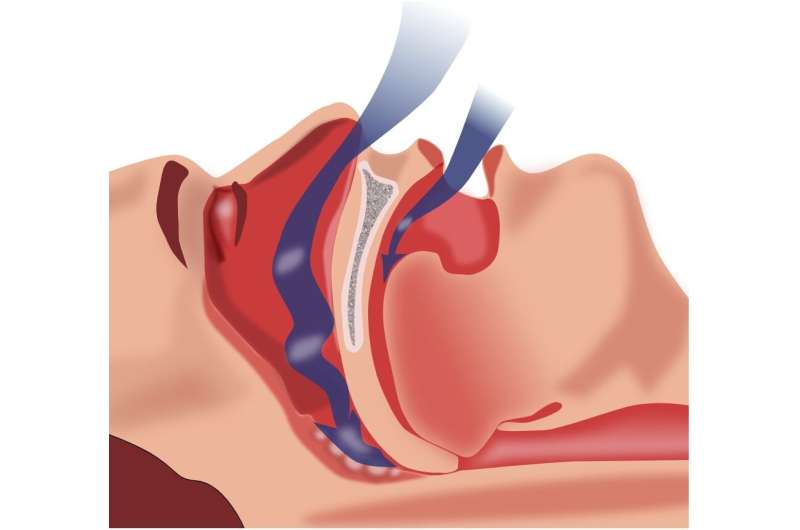This article has been reviewed according to Science X's editorial process and policies. Editors have highlighted the following attributes while ensuring the content's credibility:
fact-checked
trusted source
proofread
Sleep services should move to rural Australia, report finds

New research has revealed unhealthy and older men are contributing to higher rates of obstructive sleep apnea (OSA) in rural Australia. OSA is a condition where a person repeatedly pauses breathing while asleep due to their airways becoming wholly or partially blocked, and it is associated with various chronic diseases.
The large national study, conducted by three La Trobe University researchers, explored the proportion of diagnosed and undiagnosed OSA in men living in rural compared to metropolitan areas. The results are published in the journal Rural and Remote Health.
The study found geographical location was increasingly recognized as a contributor to health inequality, with barriers including travel distances and a shortage of health care services.
Dr. Brad Hodge, from La Trobe's Rural Health School, said living in rural areas is not the problem, but rather the availability of services.
"More older people are choosing to retire in regional areas, yet sleep services are often city-based," Dr. Hodge said.
"We must start realizing that people are making decisions to relocate to the country, whether it's due to financial or lifestyle factors.
"While there may be associated health benefits for relocating, these same people are likely to have other problems."
Individuals living in rural areas are known to have increased illnesses and diseases and lower socioeconomic status.
OSA is also associated with an increased risk of comorbidities such as heart disease, hypertension and diabetes, which are all more prevalent in rural men.
Experts say rethinking the distribution of health care services in rural areas will go some way in addressing this problem, given the higher proportion of rural men diagnosed with, or at risk of, OSA.
"People's health didn't change when they relocated; they took their health with them," Dr. Hodge said.
"The research highlights the need to reassess the distribution of sleep-related services as health care services should reflect the needs of the population they serve."
While previous research has identified regional and rural locations as one area, this study found the disadvantage experienced by rural communities was more evident when regional and rural were classified separately.
It concluded that regional centers could also be part of the solution in bolstering rural health care support services.
More information: Booker et al, Rethinking the distribution of sleep services: discrepancy of obstructive sleep apnoea in rural compared with metropolitan men in Australia—a large national survey, Rural and Remote Health (2023). DOI: 10.22605/RRH7704




















